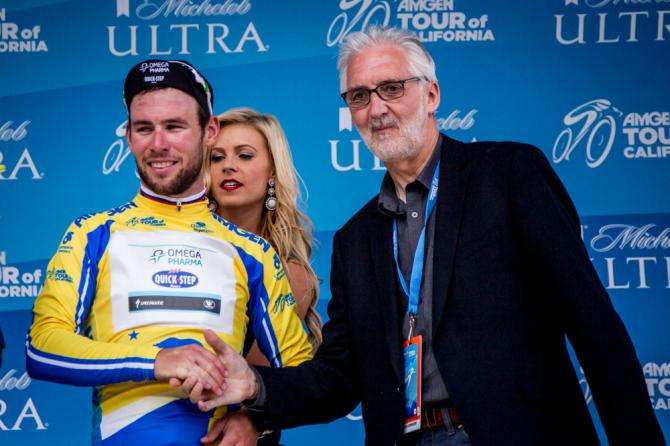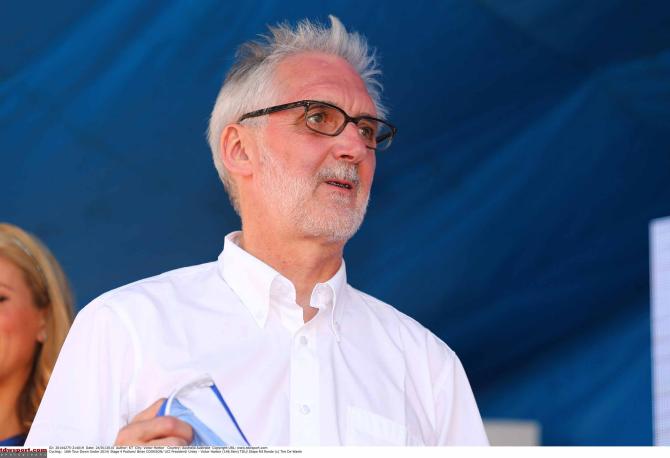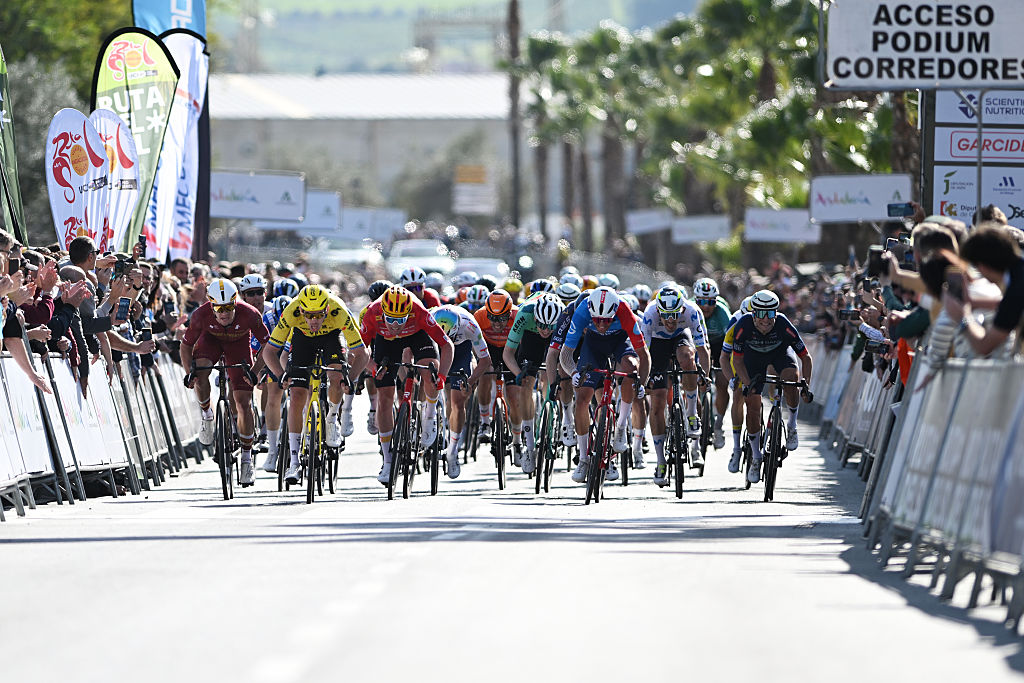Cookson lauds progress in women's cycling
UCI president visits Tour of California
The latest race content, interviews, features, reviews and expert buying guides, direct to your inbox!
You are now subscribed
Your newsletter sign-up was successful


In a wide-ranging press conference following stage 1 of the Tour of California Sunday, new UCI President Brian Cookson answered questions from the media concerning the current health of cycling, plans to reorganize the men's pro calendar and what the UCI is doing to promote and support the growth of women's cycling.
Cookson shared the dais with the top-three finishers from the women's race that took place on the same downtown Sacramento circuit which would also serve as the men's finish several hours later. He used the opportunity speak about the California race, now in its ninth year.
"Tour of California has grown every year," he said. "It's an absolutely top-class event now, and it's taken its place among the very best and the greatest events on the International Cycling Union's calendar. It's great that you've got a women's race as well. It's great to see that. I landed too late to see them today. But I'll see them tomorrow and Tuesday before I go home."
Cookson told the assembled members of the press that with the UCI's goal of further internationalizing cycling, combined with an increase in quality of many newer races, a reorganization of the men's pro calendar is in order.
"I want to see the best riders at the best races all of the time," he said. "So there's going to have to be a little movement here and there, a little bit of adjustment. That's not an easy process when there are people who have a long heritage and people who have other financial and local conditions to cope with. But I think with goodwill we can find a solution that's going to take the men's pro road racing season forward. It's a couple of years off. It's not there yet because it's a work in progress."
The UCI president said the governing body's top priority is restoring the sport's credibility after it has suffered so much damage over the past several years.
"We don't need to go into the history of all that again, but I think we all know what we're talking about," he said, referring to the doping scandals that have rocked cycling since USADA charged Lance Armstrong with doping.
The latest race content, interviews, features, reviews and expert buying guides, direct to your inbox!
"We've got an historic opportunity to change and bring cycling forward out of what you might call those dark ages of problems," Cookson said. "What I've been really pleased about since I took over at the end of September has been the number of people and organizations like sponsors, broadcasters and media people coming forward and saying they want to help our sport. Even despite all of the problems of the past, we've got a sport that's thriving."
Cookson also said supporting the growth of women's cycling is one of the ways the sport can evolve and reinvigorate itself in the wake of years of bad news. But he added that cycling is not alone in how it has historically viewed women's events.
"I think cycling is probably no different from many other sports, that we men have not taken women's sports seriously enough for decades and generations, really," he said. "I think that's changing now. I think we're seeing an absolute sea change of investment and interest in women's sport coming from the people. From the media as well. That's a really good thing."
The UCI has invested "quite a considerable sum" producing television coverage of the women's World Road Cup, which it is also sharing via the UCI's YouTube channel.
"It's a step forward," Cookson said. "I'd like it to be better broadcasting. I'd like it to be more television coverage of women's racing. But some of that's up to you guys in the media as well to play your part.
"We're doing our best at the UCI to try and move things forward and help develop women's racing," he continued. "There are some great women athletes here today, as there have been over in Europe this past week at the Tour of Britain. So I think the future is looking very promising for women's cycling, and we at the UCI will do all we can to support that development."
Asked why the Tour of Britain has been such a success while stand-alone women's stage races in the United States have not been able to sustain themselves, Cookson pointed to the power of individuals to make things happen.
"The organizers, Guy Elliott, he's a guy who wanted to do something special, saw the opportunity, worked with British cycling, worked with the component that helps organize the men's Tour of Britain and put on a fantastic event," he said. "The question there is that individuals can make a difference. And there's a guy who's done a great job, and the affects are there to see."
Cookson said the goal across all of the sport should be to make sure improvements and new events take place in such a way so that "we don't just have a big bang and then it all goes quiet and everything fades away, but that we do things that develop gently through evolution and we build on success. Once you get some success then you get more success."
He also emphasized the necessity for the sport to be proactive in reaching out to young athletes and bringing them into the sport.
"The difference now from 20 or 30 years ago is that kids don't just come to sport by accident anymore," he said. "They don't just roll up and join a club. You've got to go out and find them to bring them into your sport. You've got to give them the support systems, the development programs, the coaching, and help them get into the sport."
As for the UCI requiring that events offer a women's race, or mandating that teams also have a women's component, Cookson said for women's sport to always be seen as a subsidiary, secondary thing to men's sport is not necessarily a good thing.
"There are events and sponsors and host towns and cities out there that might actually be more interested in having a women's event than a men's event," he said. "So just to compel a men's event to have a women's event alongside it, I don't think is necessarily an answer to all the problems.
"I'd like to see women's teams strong enough to attract sponsors that perhaps wouldn't be interested in a men's team," he said. "There are some [women's] teams that are associated with men's teams. I'd like to see that as a development process in a way, that eventually women's cycling will be strong enough to stand on its own, and as I say, attract it's own sponsors, host towns, cities, events and promoters."
Growing up in Missoula, Montana, Pat competed in his first bike race in 1985 at Flathead Lake. He studied English and journalism at the University of Oregon and has covered North American cycling extensively since 2009, as well as racing and teams in Europe and South America. Pat currently lives in the US outside of Portland, Oregon, with his imaginary dog Rusty.
